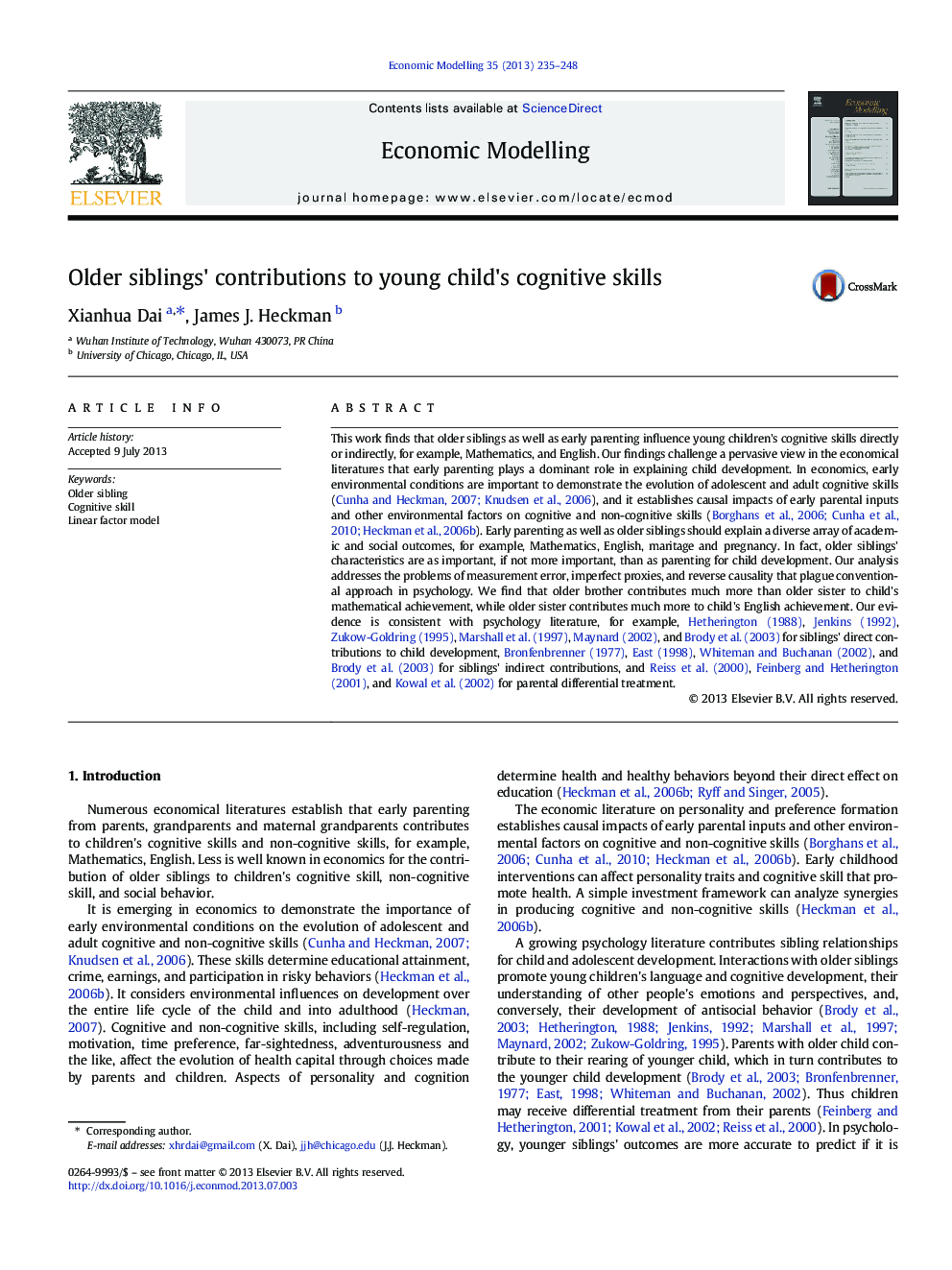| Article ID | Journal | Published Year | Pages | File Type |
|---|---|---|---|---|
| 5054609 | Economic Modelling | 2013 | 14 Pages |
Abstract
This work finds that older siblings as well as early parenting influence young children's cognitive skills directly or indirectly, for example, Mathematics, and English. Our findings challenge a pervasive view in the economical literatures that early parenting plays a dominant role in explaining child development. In economics, early environmental conditions are important to demonstrate the evolution of adolescent and adult cognitive skills (Cunha and Heckman, 2007; Knudsen et al., 2006), and it establishes causal impacts of early parental inputs and other environmental factors on cognitive and non-cognitive skills (Borghans et al., 2006; Cunha et al., 2010; Heckman et al., 2006b). Early parenting as well as older siblings should explain a diverse array of academic and social outcomes, for example, Mathematics, English, maritage and pregnancy. In fact, older siblings' characteristics are as important, if not more important, than as parenting for child development. Our analysis addresses the problems of measurement error, imperfect proxies, and reverse causality that plague conventional approach in psychology. We find that older brother contributes much more than older sister to child's mathematical achievement, while older sister contributes much more to child's English achievement. Our evidence is consistent with psychology literature, for example, Hetherington (1988), Jenkins (1992), Zukow-Goldring (1995), Marshall et al. (1997), Maynard (2002), and Brody et al. (2003) for siblings' direct contributions to child development, Bronfenbrenner (1977), East (1998), Whiteman and Buchanan (2002), and Brody et al. (2003) for siblings' indirect contributions, and Reiss et al. (2000), Feinberg and Hetherington (2001), and Kowal et al. (2002) for parental differential treatment.
Keywords
Related Topics
Social Sciences and Humanities
Economics, Econometrics and Finance
Economics and Econometrics
Authors
Xianhua Dai, James J. Heckman,
